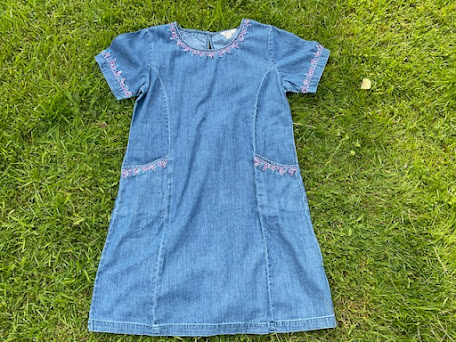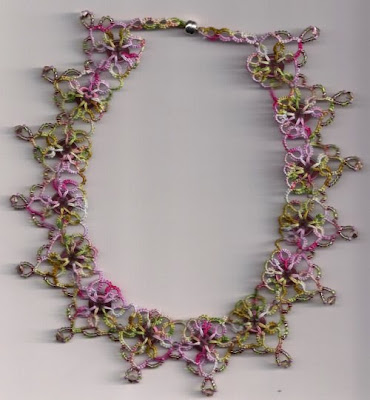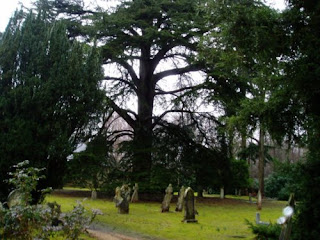Bobbin Lace
No I do not know how to make lace using bobbins, but I was privileged to look at some lace pricking patterns today made from some ancient documents. It would be amazing to know where they originally came from and what the document that they were cut from actually said. All you can imagine is that they were made in the days before electricity and running water, when women sat in the evenings with just candle light to illuminate their work.
And some old lace bobbins, although not as old as the patterns
They were brought in by a member of our Computer Club and were her mother's who died about 5 years ago in her 90s.





I hope the bobbins find a new home. Last year bobbin lace was the 'floating' section of our competitions, but didn't get many takers. Personally I feel it's too close to tatting for me to take it on. But I do like to admire other people's work!
ReplyDeleteI find bobbin lace fascinating, but it didn't stick with me. I have everything I need to work it, but not the interest. It may be time to find a new home for my bobbin lace supplies.
ReplyDeleteFascinating. I tried learning bobbin lace, but it took more time than I had available back then (I was in school and studying took up much of my time), so I stuck with improving my tatting. Would have liked to have been with you to see them 'in person.'
ReplyDeleteStephanieW
I was fascinated with the old manuscripts/documents the patterns were made out of, they looked as though they were at least 300 years old. Otherwise lace making is certainly not for me, like Jane I do admire lace makers work.
ReplyDeleteI heard you can tell a bit about the age of document from how it was written the way the words where used you could take it to a college and let them check it out and report back to you. Love the bobbins and wonder how many thing she made with them. Thanks for the Post!
ReplyDeleteThanks yes it would be good to find out the age of these documents, perhaps they are not as old as they seem - interesting!
DeleteWe often are situated near the bobbin lacers at our events, and I am in awe of their work, but I have no interest in learning how to do it. Even though they use only four bobbins at one time, I would never have the patience to wind all those bobbins to begin with! And having to deal with all those pins in the pricked paper intimidates me!
ReplyDeleteI'm quite fascinated with the calligraphy on the manuscript, which looks quite legible, and seems to be written in a more 'modern' English.
Kathy you may be right the writing may not be as old as we originally thought. These are not in my possession but I think the owner was going to find out for herself if they were genuine old documents or not.
DeleteI wonder who William Norris was?? The wording is definitely not old English... and the pricking looks rather like 'yardage' lace (otherwise known as Torchon lace or Beggars lace), and was sold by the yard to the more wealthy in Victorian society. The bobbins look rather like fairly modern (1980's) Honiton bobbins, which the pricking is definitely not!! Honiton lace is really fine, and is a 'piece' lace, made extremely popular in Victorian times thanks to Queen Victoria herself!! Leastways, that's as far as I'm aware!! I know the bobbins aren't the more usual English Midland bobbins, because they have beads (spangles) at the bottom!!
ReplyDeleteThere you go, quick history lesson!! LOL
Oh Sue a little disappointed to hear that the wording on the pricking doesn't seem to be that old, but old enough! The thing is I know nothing about lace so thanks for the history lesson.
Delete